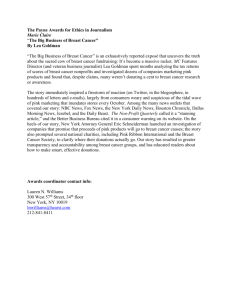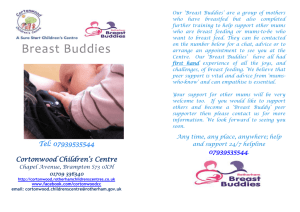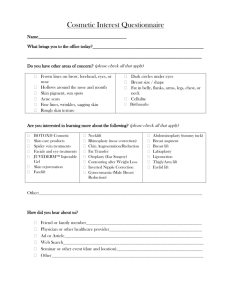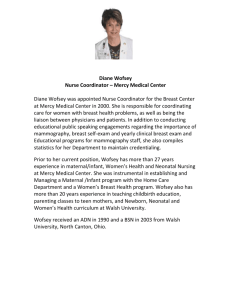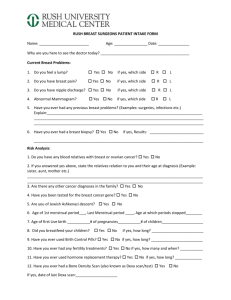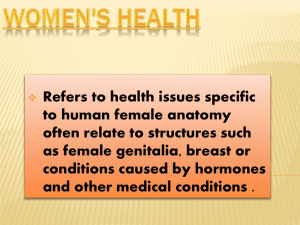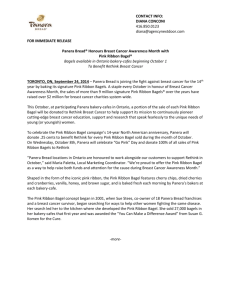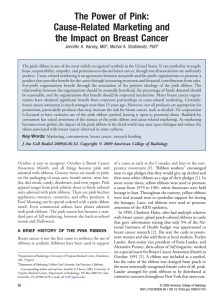Pink Ribbon Day - Pharmaceutical Society of Australia
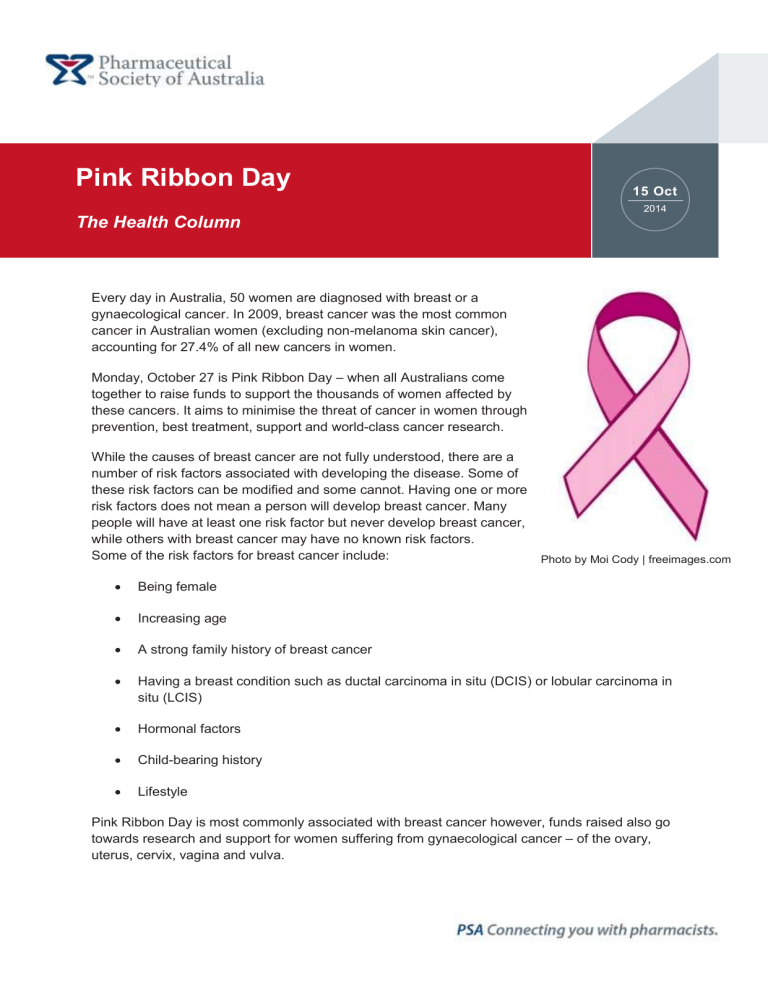
Pink Ribbon Day
The Health Column
15 Oct
2014
Every day in Australia, 50 women are diagnosed with breast or a gynaecological cancer. In 2009, breast cancer was the most common cancer in Australian women (excluding non-melanoma skin cancer), accounting for 27.4% of all new cancers in women.
Monday, October 27 is Pink Ribbon Day – when all Australians come together to raise funds to support the thousands of women affected by these cancers. It aims to minimise the threat of cancer in women through prevention, best treatment, support and world-class cancer research.
While the causes of breast cancer are not fully understood, there are a number of risk factors associated with developing the disease. Some of these risk factors can be modified and some cannot. Having one or more risk factors does not mean a person will develop breast cancer. Many people will have at least one risk factor but never develop breast cancer, while others with breast cancer may have no known risk factors.
Some of the risk factors for breast cancer include:
Photo by Moi Cody | freeimages.com
Being female
Increasing age
A strong family history of breast cancer
Having a breast condition such as ductal carcinoma in situ (DCIS) or lobular carcinoma in situ (LCIS)
Hormonal factors
Child-bearing history
Lifestyle
Pink Ribbon Day is most commonly associated with breast cancer however, funds raised also go towards research and support for women suffering from gynaecological cancer – of the ovary, uterus, cervix, vagina and vulva.
Like breast cancer, there are a number of risk factors associated with developing one or more types of gynaecological cancer. These include increasing age, having a strong family history, identified gene mutations, reproductive history such as child-bearing and exposure to hormones – either produced by the body or taken as medication. Other risk factors can include in utero exposure to diethylstilboestrol (DES), a synthetic form of oestrogen, viral infection such as human papilloma virus (HPV), and lifestyle factors such as smoking and excess body weight.
Maintaining good health minimises the risk of developing breast or a gynaecological cancer. Your local community pharmacy is your health destination. Your pharmacist can provide advice on ways of keeping healthy and preventing diseases like cancer, including services for weight management and quitting smoking.
You can get more information about cancer in women from pharmacies around Australia providing Self Care health information. Self Care Fact Cards available from these pharmacies include topics such as Breast Awareness and Pap Smear as well as lifestyle topics such as
Weight and Health and Staying a Non Smoker.
For the nearest Self Care pharmacy location phone the Pharmaceutical Society of Australia on
1300 369 772, or go to www.psa.org.au
‘Supporting practice’ then ‘Self Care’, and then ‘Find a
Self Care pharmacy’.
